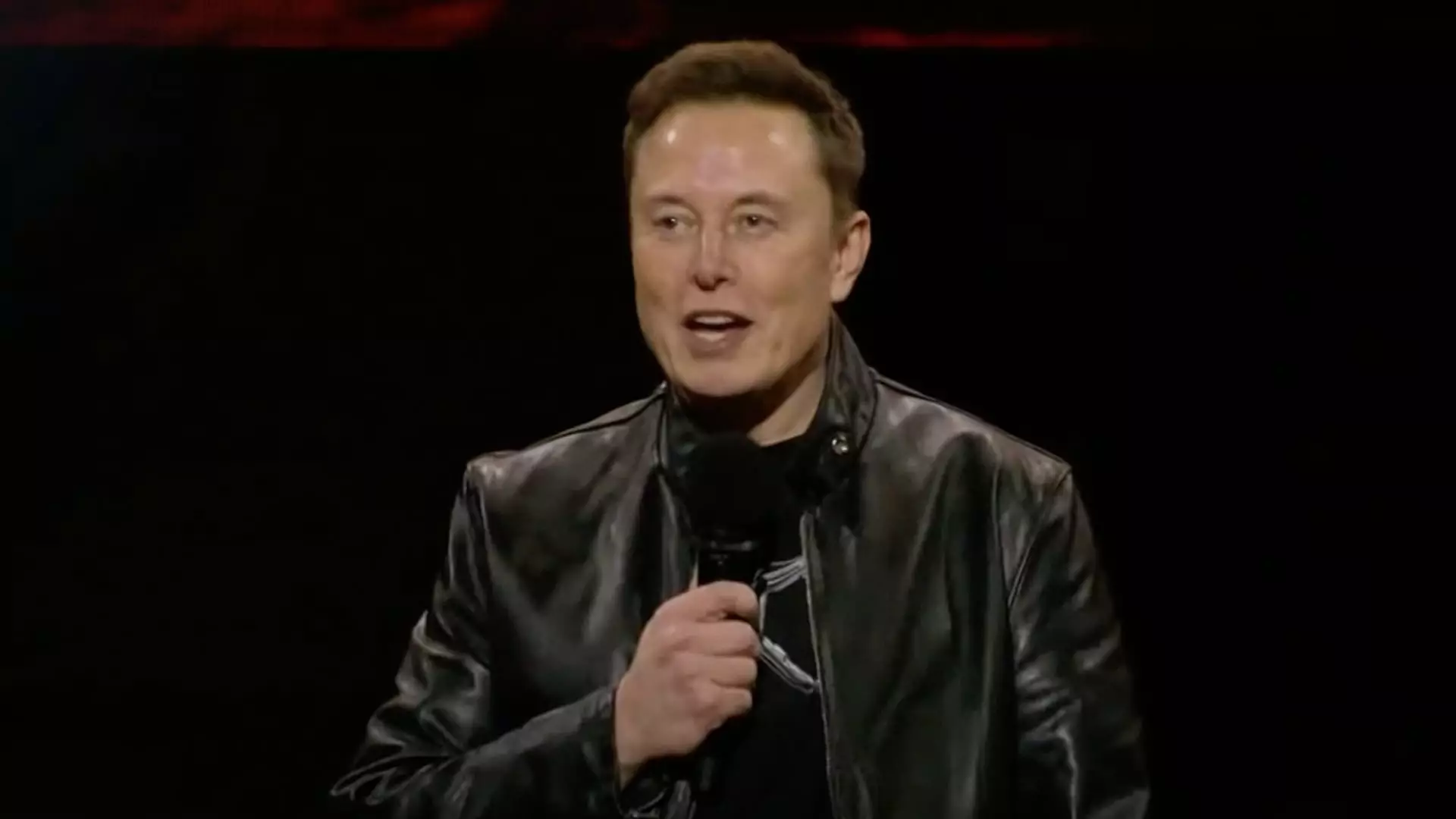In a striking development for both the technology and entertainment industries, Elon Musk, alongside his electric vehicle company Tesla, has found himself embroiled in a legal battle over alleged copyright infringement. Warner Brothers Discovery is also listed among the defendants in a lawsuit initiated by Alcon Entertainment, the producer behind the critically acclaimed film “Blade Runner 2049.” The suit unveils a narrative fraught with technological innovation, corporate ambition, and the complexities of intellectual property law.
The core of the complaint revolves around a promotional event for Tesla’s proposed “robotaxi,” dubbed the Cybercab. Alcon Entertainment has accused Musk and his associates of utilizing AI-generated imagery—specifically a still from “Blade Runner 2049″—without securing the necessary permissions. This contentious usage reportedly occurred during a livestreamed presentation. While the defendants sought to exhibit the iconic image, Alcon’s firm stance against any association with Tesla or Musk ultimately led to a denial of permission. However, it appears that despite this refusal, they proceeded with an alternative solution that has now led to significant legal fallout.
This case brings to the forefront a critical intersection of artificial intelligence and copyright law. As AI technologies increasingly play a role in content creation, the lines that demarcate original work from derivative or infringing content become increasingly blurred. The lawsuit asserts that Musk and his team resorted to using what Alcon describes as an “apparently AI-generated faked image” to project an affiliation they were expressly denied. This raises pressing questions surrounding the ethical use of AI in a corporate context and the potential repercussions for creators who tread too close to the line of intellectual property infringement.
By claiming overarching economic damages and alleging “massive economic theft,” Alcon Entertainment highlights the financial stakes involved. The lawsuit further notes that the fallout from this incident could jeopardize Alcon’s negotiations with other businesses that are keen on associating their brands with the upcoming “Blade Runner 2099” television series. This aspect underscores the extent to which a single corporate misstep involving an AI-generated image can ripple throughout various industries, potentially stunting creative partnerships and discrediting brand images.
The lawsuit does not solely focus on the alleged copyright infringement but also delves deep into Musk’s public persona. Alcon explicitly stated its concerns regarding Musk’s “massively amplified, highly politicized” behavior, referencing his historical ties to incendiary commentary and political figures. Such associations are deemed detrimental to the “Blade Runner” brand, raising critical questions regarding the repercussions of celebrity actions on corporate identity.
Considering Musk’s propensity to engage in contentious discourse on social media platforms, particularly X (formerly known as Twitter), Alcon’s caution is understandable. Musk’s statements have, at times, veered dangerously close to controversial territory, making potential collaborators wary. The lawsuit highlights how brands must navigate the public image of high-profile individuals intertwined with their business dealings, especially when that figure is known for unpredictable behavior and polarizing rhetoric.
Beyond the legal intricacies lies the question of Tesla’s aspirations in the realm of automated transit. Musk has promised shareholders a formidable advancement in robotics and self-driving technology for over a decade, yet the reality has not yet materialized to meet those bold claims. The Cybercab, characterized as a “dedicated robotaxi” with a price tag projected under $30,000, has captured public interest but remains tethered to a future that raises skepticism.
Given Tesla’s ongoing struggles to produce a vehicle that operates without the oversight of a human driver, this incident could hinder the company’s trajectory further. Amid pressures of public anticipation and scrutiny, the need for robust ethical standards, particularly in connection with AI and media representation, becomes even more crucial.
In essence, this lawsuit serves as a clarion call to the tech industry and beyond, reminding stakeholders of the delicate balance between innovation, intellectual property rights, and the imperative for responsible corporate behavior. As this case unfolds, it will undoubtedly set precedents that echo throughout both technological and entertainment domains.


Leave a Reply